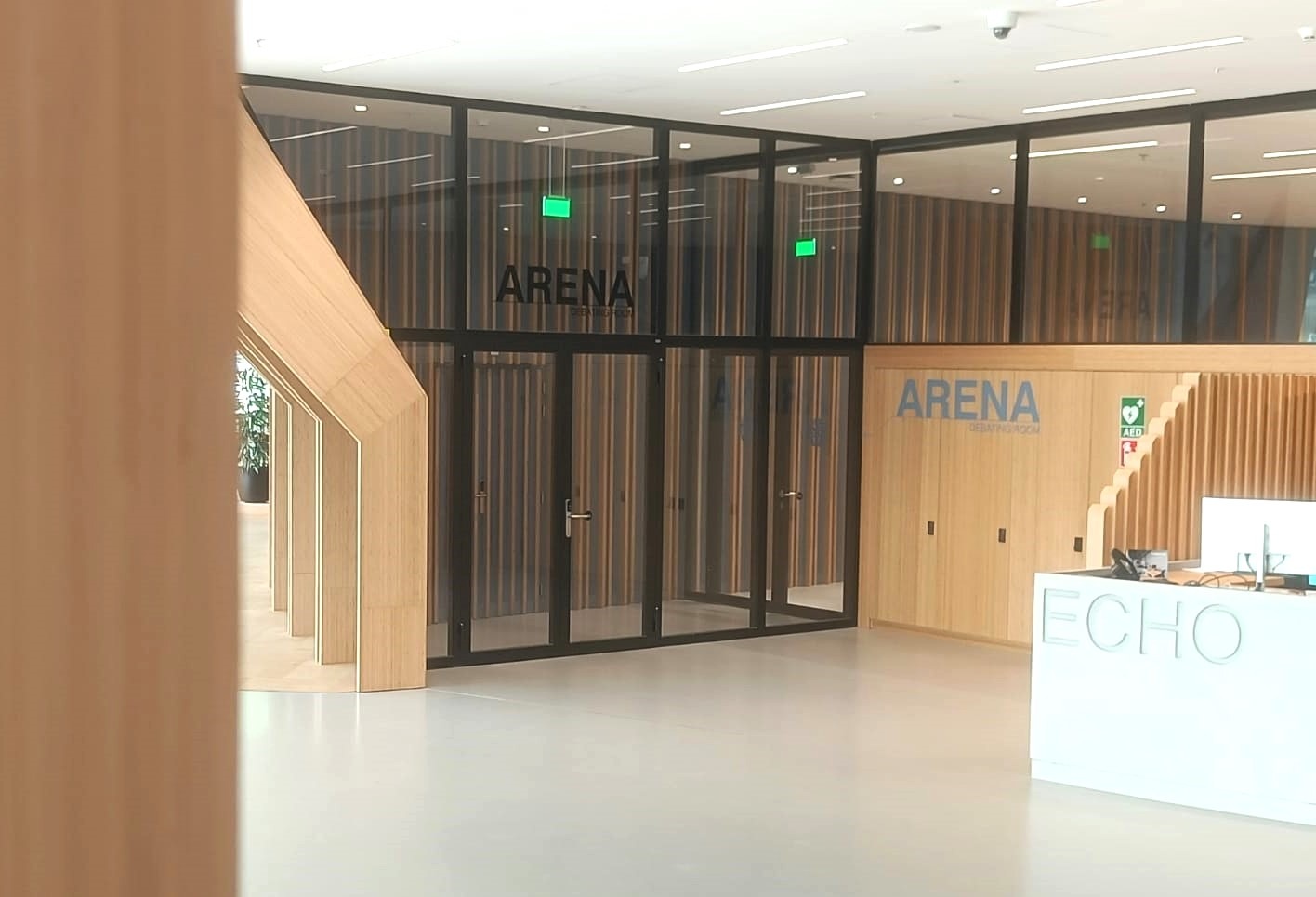The monthly meeting between the Executive Board and the representation bodies, that is planned for Thursday the 28th, will be held largely behind closed doors. Only the last half hour of the two hour long meeting will be made public.
(Photo: Marjolein van der Veldt)
For the first time since the Inspectorate of Education’s report was published, the Executive Board, Works Council (OR) and Student Council will meet on Thursday 28 March. There will only be one subject on the agenda: social safety. These meetings are usually open, which means that every TU Delft staff member may be present. Delta is always there too.
On Thursday, this will only be for the last half hour. The first 90 minutes of the meeting will be closed. OR Chair Ronald Kuil explains that this was decided because the presence of ‘the press’ was not appreciated. “It needs to be a good and open discussion. People need to feel free to say what they want to say. It does not help if Delta is there.”
Transparency
The representation bodies will primarily discuss the steps that the Executive Board hopes will lead to an action plan for social safety. An action plan is one of the requirements in the Inspectorate of Education’s report concerning the lack of social safety at TU Delft. Asked about how transparent a closed meeting is and to what extent the OR thus serves the staff’s interests, Kuil answers that “this decision was taken in the interests of TU Delft staff members. We want to express ourselves clearly so that we can move on and look ahead”, he continues. “Transparency will come later. There will be a lot of meetings on the plan of action where staff members can be present.”
At a preparatory consultation meeting it transpired that the OR members have been dissatisfied since the Inspectorate report was published. The email in which the Executive Board announced that it would not go to court does not sit will with some OR members. They believe that it shows too little empathy and urgency. “There is a need for determined and empathetic leadership,” summarises Kuil to Delta.
Student Council
At the insistence of the Student Council, the last half hour will be made public. “We wanted this to happen for our constituency,” says Chair Jelle Stap. At the last monthly consultation meeting between the Student Council and the Executive Board on 21 March, there was actually no consultation as Vice-Rector Magnificus Rob Mudde had cancelled due to illness.
Stap is hoping that the written questions that he and his fellow Council members compiled will be answered in the last half hour of the meeting on Thursday. “These include questions about why students were not initially informed about the Inspectorate report. The Executive Board has had the opportunity to prepare their answers. Hopefully they will be able to answer a lot of questions.”
It is not unusual that the councils meet privately, such as when the meeting concerns confidential documents. The official statutes (in Dutch) of the representation bodies state that the decision to meet behind closed doors must be well-founded. What the reason is this time, is unclear. Kuil, the OR Chair, says that Delta is the main reason, while on Wednesday the Student Council was under the impression that it was related to the documents on the action plan which are believed to be confidential. “We want to hear the official reason, and will make sure we hear it. This decision must be well-founded.”
- Delta continues to look for (former) TU Delft employees who want to share their experiences. This can be done anonymously if necessary. Mail to tudelta@protonmail.com.
Findings
The Inspectorate of Education investigated transgressive behaviour at TU Delft from December 2022 to November 2023. In the resulting report, the investigators speak of intimidation, racism, sexism, bullying, exclusion, gossiping, social insecurity due to lack of leadership and a culture of fear, among other things. For instance, employees are said to be afraid to voice their opinions and hold each other accountable for behaviour.
The effects among TU Delft employees who have reported to the inspection are often long-lasting and hampering. The inspectorate speaks of psychological and physical health complaints, absence from work and a general feeling of insecurity. Stress, burnout, depression and PTSD, crying and tense home situations also occur, as do illness, vomiting at work, panic attacks and heart palpitations.
The inspectorate reports that TU Delft’s university administration has a lot of information regarding what is happening in terms of social safety, but that they ‘omit to add everything up so as to create a complete picture’. ‘The management’ also ‘does not adequately manage in terms of appropriate measures’. The Inspectorate believes that this is mismanagement.
Read the news and background articles on the Inspectorate’s report in our dossier.
Do you have a question or comment about this article?
a.m.debruijn@tudelft.nl


Comments are closed.